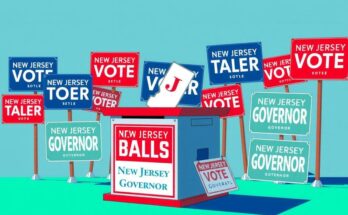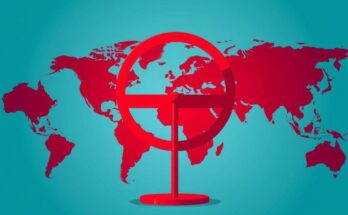Julius Malema urged Zimbabweans in South Africa to return home and confront their political challenges, criticizing them for avoiding their homeland. He emphasized that South Africa is not their permanent home, amidst ongoing economic and political instability in Zimbabwe that has led to significant migration.
In a recent statement, Julius Malema, the leader of the South African opposition, urged Zimbabweans residing in South Africa to return to their homeland and confront the political issues facing their country under President Emmerson Mnangagwa. He emphasized that remaining in South Africa indefinitely is not a solution, as it is not their home.
Malema remarked, “Zimbabweans must stop being cowards. They cannot feel comfortable staying in South Africa because it is not their country.” This reflects his ongoing criticism of the Zimbabwean government and the ruling ZANU-PF party, amidst a backdrop of economic and political turmoil that has led many Zimbabweans to seek opportunities and refuge in South Africa.
The opposition leader’s comments have ignited discussions regarding the motivations behind the migration of Zimbabweans, with many citing economic difficulties and political repression as factors for their decision not to return. Zimbabwe has faced severe economic challenges, including high unemployment and inflation, resulting in a significant number of citizens emigrating.
Malema’s previous advocacy for African solidarity contrasts with his latest call for responsibility among Zimbabweans to initiate change within their nation. As his comments resonate within the Zimbabwean community in South Africa, it remains uncertain how both the citizens and authorities in Zimbabwe will react to this challenge.
Julius Malema’s recent remarks underscore a significant challenge for Zimbabweans in South Africa, highlighting the ongoing political and economic crises in their home country. His call for these individuals to return and address their homeland’s issues reflects a broader sentiment about migration responsibilities. The dialogue surrounding this issue is poised for further development, particularly regarding how it impacts both Zimbabwean nationals and the political leadership back home.
Original Source: www.thezimbabwemail.com




